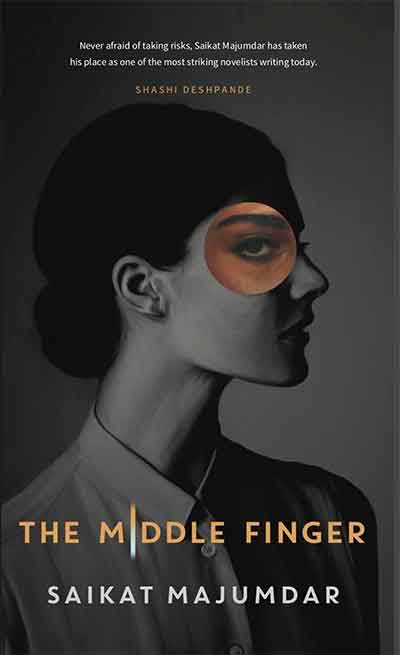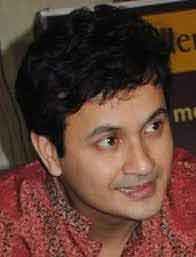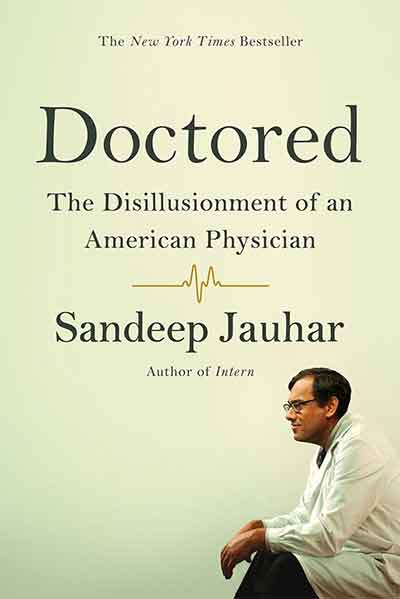Saikat Majumdar is no new name within contemporary Indian writers writing in English. I was introduced to his writing by a very young friend who is a noted food critic. Firebird, Saikat’s second novel was amazing in the way he structured his story opening with a small boy shocked by the cremation of his mother even when it was a stage scene in which his mother was playing a role. The book haunted me for weeks till I went back to read his first, Silver Fish and then The Scent of God. Each one came thinly layered with different characters living in their small worlds of sunshine and shadow, mingling into the mainstream to eke out a livelihood and then back to their own crevices and narrow by lanes of life.
 Majumdar is a novelist, academic and a popular commentator on arts, literature, and higher education. He has also published a book of literary criticism – Prose of the World (2013), a general nonfiction book on higher education – College: Pathways of Possibility (2018), and a co-edited collection of essays – The Critic as Amateur (2019). His latest book The Middle Finger, drawing rave reviews marks a departure from his normal way of offering a male perspective. This writer nailed him down to ask questions on his new novel.
Majumdar is a novelist, academic and a popular commentator on arts, literature, and higher education. He has also published a book of literary criticism – Prose of the World (2013), a general nonfiction book on higher education – College: Pathways of Possibility (2018), and a co-edited collection of essays – The Critic as Amateur (2019). His latest book The Middle Finger, drawing rave reviews marks a departure from his normal way of offering a male perspective. This writer nailed him down to ask questions on his new novel.
This novel marks a number of ‘firsts’ in your work. One, the protagonists, or, rather two of them, are women. Two, you have placed the novel globally, first in the US University campuses and then in Delhi. Thirdly, the characters mainly come from middle class and lower middle-class backgrounds. How do you explain this as a writer now that you can look back on your novel?
Yes, indeed, these are all new elements in my fiction. Female characters have played a key role in my fiction, at least since my first novel, Silverfish, and consistently since then, with the possible exception of The Scent of God. Writing with a female protagonist, and seeing the world through her eyes, however, was new, and in some ways, a radically different step. But I’m more comfortable imagining women in positions of power than thinking of men there, particularly since the academic #MeToo movement, so if I was going to reimagine the Ekalavya story in a contemporary college campus, Drona had to be a woman. I did not originally imagine the Ekalavya figure as a woman, but I think I also wanted to write a story of deep and intimate friendship and mentorship between women, so it ended up being a story of two women. The lower middle and working class is new to my fiction. But this is a novel about privilege and entitlement, and the highly uneven access to art and education that defines the world. That unevenness called for the natural presence of people from those who are usually left out of these privileges.
The language you have used is versatile, and you use a lot of commonly used slang and vocab in the US segment while it becomes more understandable when Megha comes to Delhi. Did this happen naturally or was it done by designed intent?

Thank you – lovely to hear that you enjoyed the language. Language is of primary importance to me when I write, whether it’s fiction, nonfiction, or criticism. The narrative voice is always important, and in fiction, I feel it should reflect the values and the worldview of the characters (rather than of the author), especially those through whose eyes the world is seen. Once I decide on the voice, it becomes a subconscious reality for me and the language flows accordingly.
How different was it to look at the world through the eyes of women than through the eyes of men you did for your first three novels?
My first novel was partly narrated by a woman. But I feel I was still relatively immature as a writer at that point. With The Middle Finger, I certainly enjoyed it. Writing fiction is becoming other people, along with many invented selves of one’s own. Megha is a woman, and she also shares life spaces and experiences of the kind of people I know well, so she is not really foreign to me. Gender, after all, is one of the many identities that make us. To be honest, I did not think of gender consciously while writing her character – and yet, certain traits, such as the nature of her friendships, perhaps even her own sense of guilt about racial and class representation in poetry, sometimes I feel they indicate a feminine sensibility – who knows? Poonam’s character is of course the farthest from all spaces of life I’ve experienced, though I have known some aspects of her in other people. But her voice in the novel only occurs as experimental, poetic utterances, not as the quotidian experience of life. Class difference, I realized, is harder to write than that of gender.
The very subtle but strong pull the two women feel for each other has not been articulated very clearly and you have kept this rather blurred. May I ask why?
Queerness is very much a process of exploration in this novel – even more so than in The Scent of God, where in the end at least the characters know their sexual identities firmly. Megha, who is an adult, and far more aware of different sexual identities, with many queer friends of her own, is still working through her own. I do show her as turning away from certain aggressive models of male brilliance early on, but that does not necessarily indicate her sexuality, or at least, not yet. I think physical desire is subordinated in this novel to the need for relationships, for the space of a home, all of which the protagonist lacks. That being said, the unexpected magic of Megha and Poonam’s relationship is at the heart of the novel. But it is a relationship that develops when no one is looking (certainly Megha isn’t), though the banalities of everyday life, setting up a home, going grocery and furniture shopping – the unnoticed trivialities of domestic labor. Their social difference makes a consciousness of this relationship difficult – though they reckon with this relation as the novel comes to an end.
You have not given much of a backstory to Megha though Poorna’s back story can be read into. Why?
Megha’s background is also narrated in the novel – her past, her disjointed and somewhat traumatic family life, her lack of family relationships. Perhaps Poonam’s background stood out more because it is more unusual and unexpected, at least to urban, middle-class readers.
Was there any real story at play that inspired the idea of this novel? Please elucidate.
No, this story is much more fully fictional than either The Firebird or The Scent of God, which had inspiration in seeds of reality. Here, the inspirations were the myths of Ekalavya, and that of Socrates in Plato’s Symposium, about intimacy between teachers and students. Of course, my studying and teaching lives in India, Canada, and the US have been inspirations, as these stories about access to education, and access to the teacher, are realities that I’ve experienced in many different forms. But not this particular variation of the story – which, I guess, has elements of reality I would like to see but haven’t seen anywhere quite yet.
Your language and style differ from one novel of yours to the next and having read them all, I personally feel that this has been a natural progression that has evolved organically during the process of writing. Am I right? Or, is there another explanation?
Yes, I think a novelist generally tends to mature along the more technical aspects of writing – the sentence, perhaps even units of narrative. But beyond the techniques, there is a wild soul to literature that doesn’t “improve” predictably, or move along lines of “progress”. Some stories possess you more fully than others. Or rather, they possess you differently, so sometimes it’s hard to compare one to the other.
The reviews have been very positive and good. How do you respond to reviews, good or bad?
Yes, the reviews have been very generous so far. I am particularly happy to have received positive feedback from female readers and critics, and experts on artistic representations of womanhood.More than “good” or “bad” reviews, I am more moved by reviews that are intelligent, careful, and sensitive – even when they are critical.
How do you vacillate between being an academic professionally and an established author by choice?
The have come together okay in The Middle Finger, haven’t they? Both in the conception of the novel and the life of the protagonist, I guess? Generally, I see no conflict. As Toni Morrison wrote: “I teach books. I write books. I think about books. Its one job.”
“The Middle Finger” is a phrase that has very vulgar connotations in real life though it has become one of the most common sign languages used by today’s youth. I am asking this because I cannot find anything remotely close to this phrase anywhere in the novel which is almost completely devoid of any sexual innuendo or action. Why?
Fair question! The title comes from a medieval Jain retelling of the Ekalavya story recounted by Wendy Doniger in The Hindus: An Alternative History. In this version, it is Arjun who cheats Ekalavya of his thumb. Drona gets angry with Arjun when he discovers this and offers the blessing that a Bhil warrior will be able to shoot arrows without his thumb, using his index and middle finger. The phrase suggests unusual or unexpected strength that is rudely disruptive of established power, and it has literary and performative implication in the novel.
I felt Swapna’s character could have been fleshed out a bit more. Comments?
That’s possible. I realize I gave her a rather intriguing back-story, but then moved on to the major characters, not spending too much time with her. She may very well come across as a character who asks to be fleshed out more.
Anything more you might wish to say?
Thank you for reading this novel so beautifully. I greatly admire your reading of female characters, especially literary characters in cinematic rendering. It means a lot to me that this novel about the entangled lives of women in the contested space of art and academia has resonated with you.
Shoma A. Chatterji is a freelance journalist, film scholar and author contributing to several digital and print media in India and beyond. She has authored 27 books and two more are in the pipeline. She has won the National Award for Best Writing on Cinema twice. She lives in Kolkata.
















































